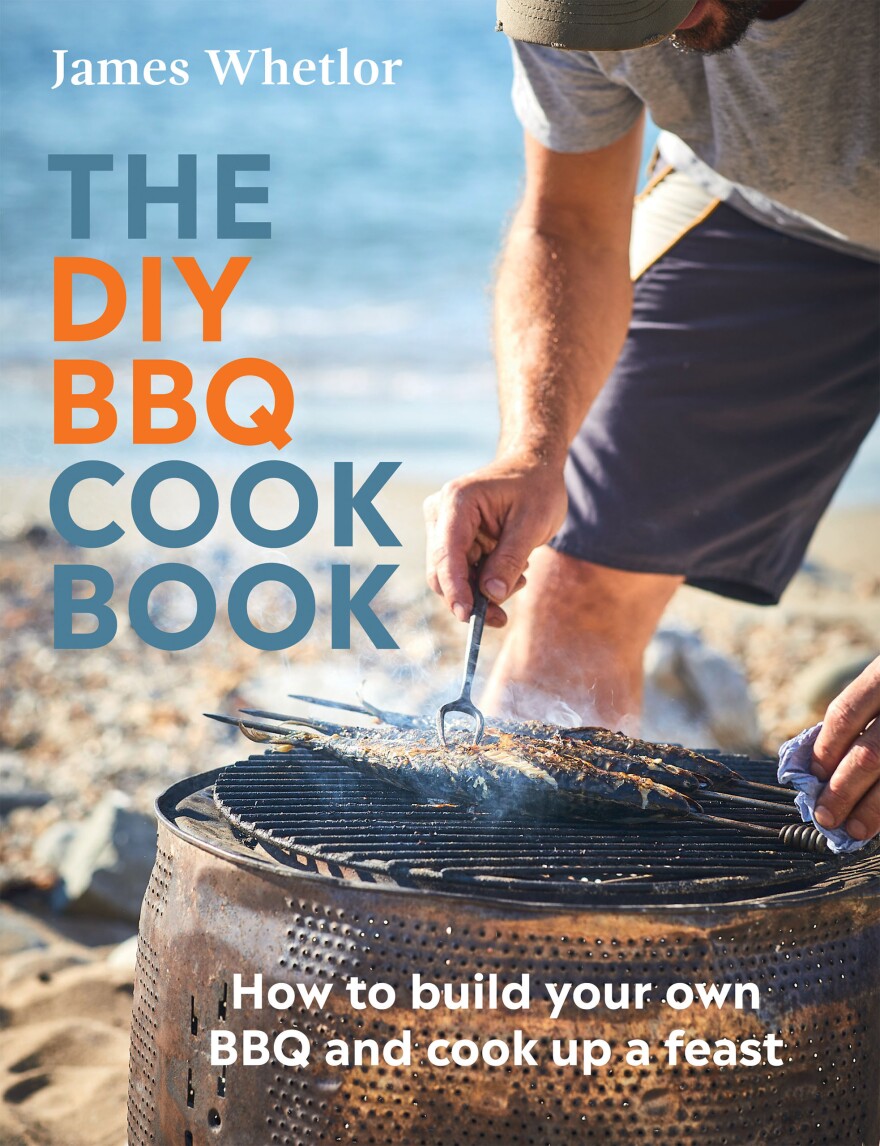Updated July 7, 2023 at 2:58 PM ET
Barbequing, for some people, is all about the gear. But British cookbook author James Whetlor is not impressed by your Big Green Egg or your Traeger grill. You want a tandoori oven? Just go to Home Depot.
"You buy one big flowerpot and a couple bags of sand and two terracotta pots, and you've got yourself a tandoor," he advises.
More specific instructions for safely building homemade grills and smokers can be found in Whetlor's The DIY BBQ Cookbook. It illustrates simple ways of cooking outside by, for example, digging a hole in the ground. Or draping skewers over cinderblocks. All you need is a simple square of outside space and fireproof bricks or rocks. You do not even need a grill, Whetlor insists. There's a movement you may have missed, known as "dirty cooking."

"It's like cooking directly on the coals, that's exactly what it is," says the James Beard-award winning writer (who, it should be said, disdains the term "dirty cooking" as offputtingly BBQ geek lingo.) "You can do it brilliantly with steak. You've got nice, really hot coals; just lay steaks straight on it."
Brush off the ash and bon appétit! When a reporter mentioned she'd be too intimidated to drop a a steak directly on the coals, Whetlor said not to worry.
"You should get over it," he rebuked. "Remember that you're cooking on embers, what you call coals in the U.S. You're not cooking on fire. You should never be cooking on a flame, because a flame will certainly char or burn. Whereas if you're cooking on embers, you have that radiant heat. It will cook quite evenly and quite straightforwardly. And it's no different than laying it in a frying pan, essentially."

Whetlor is attentive to vegetarians in The DIY BBQ Cookbook, including plenty of plant-based recipes. He writes at length about mitigating BBQ's environmental impact. For example, by using responsibly-sourced charcoal. And he is careful to acknowledge how BBQ developed for generations among indigenous and enslaved people.
"I am standing on the shoulders of giants," he says, citing the influece of such culinary historians and food writers as Adrian Miller, Michael Twitty and Howard Conyers. "Any food that we eat, I think we should acknowledge the history and the tradition and the culture behind it. Because it just makes it so much more interesting, and it makes you a better cook because you understand more about it. "
And today, he says, building your own grill and barbequing outdoors is a surefire way to start up conversations and connect with something primal: to nourish our shared human hunger for a hearth.
Copyright 2023 NPR. To see more, visit https://www.npr.org.


